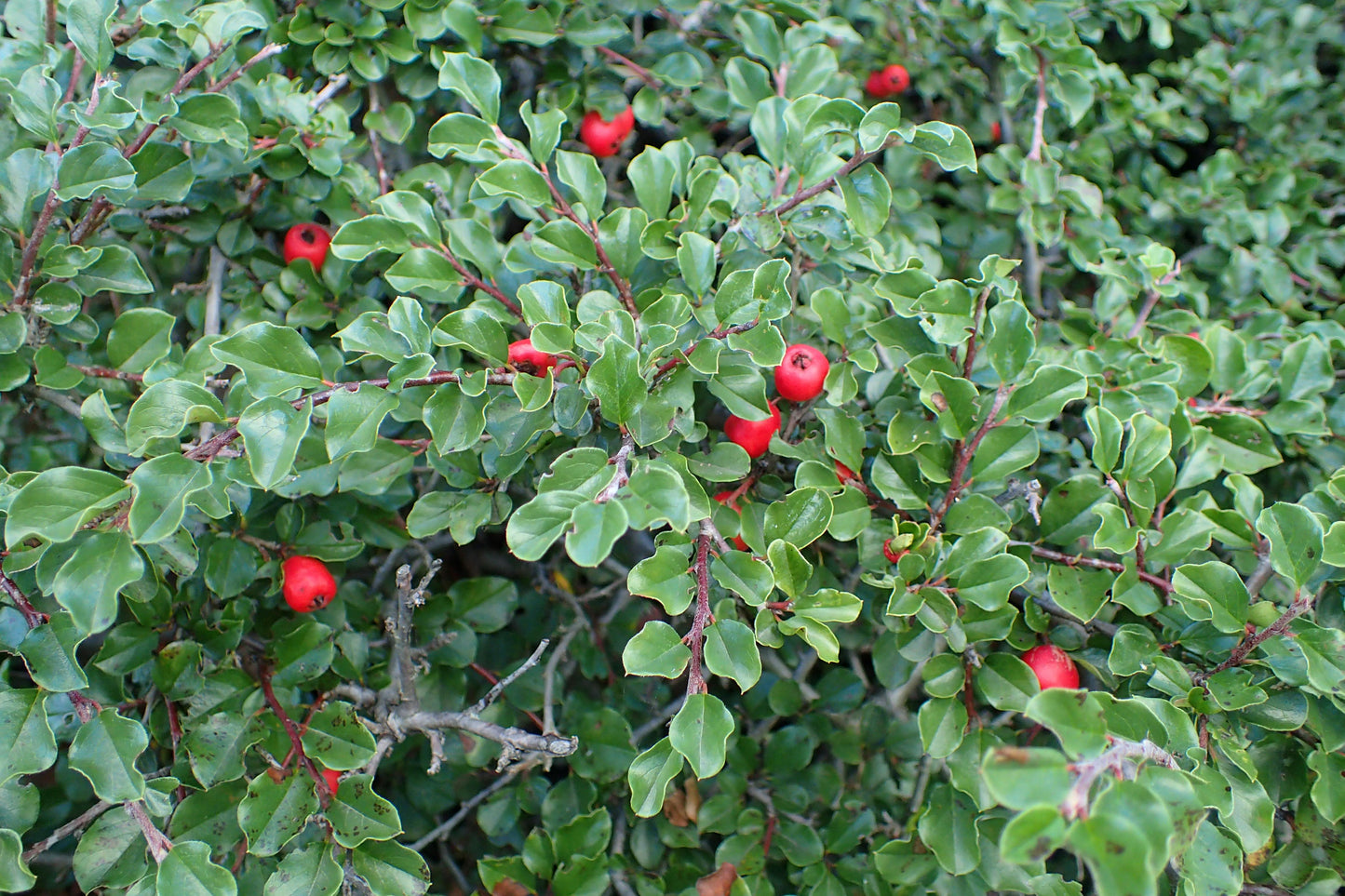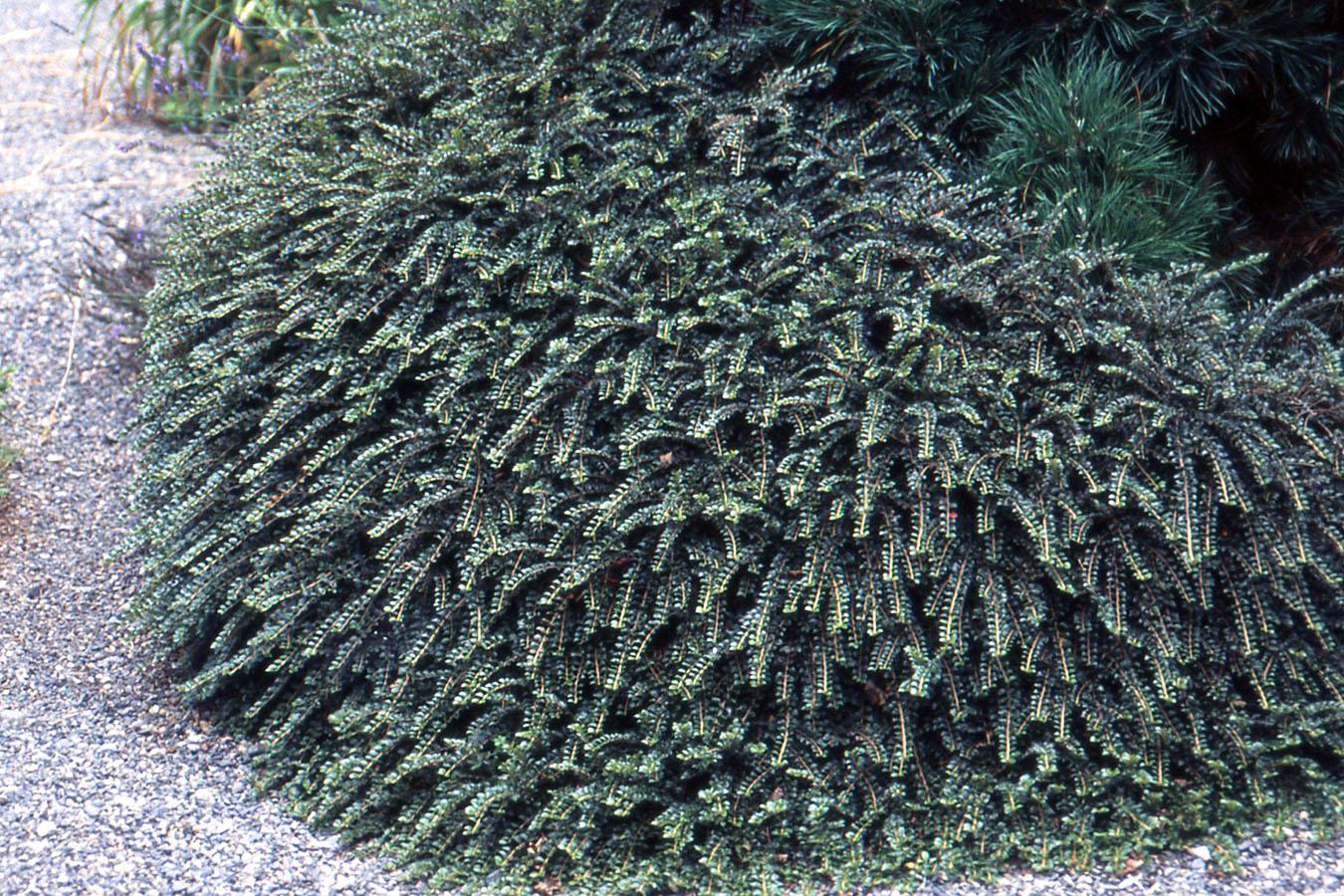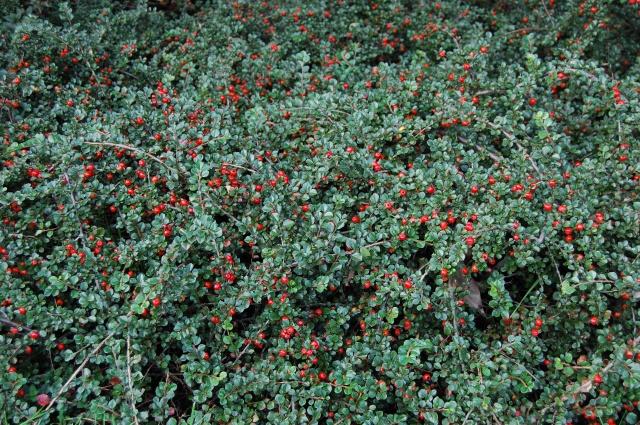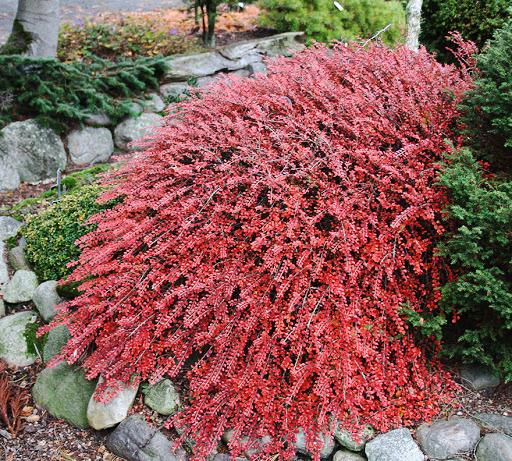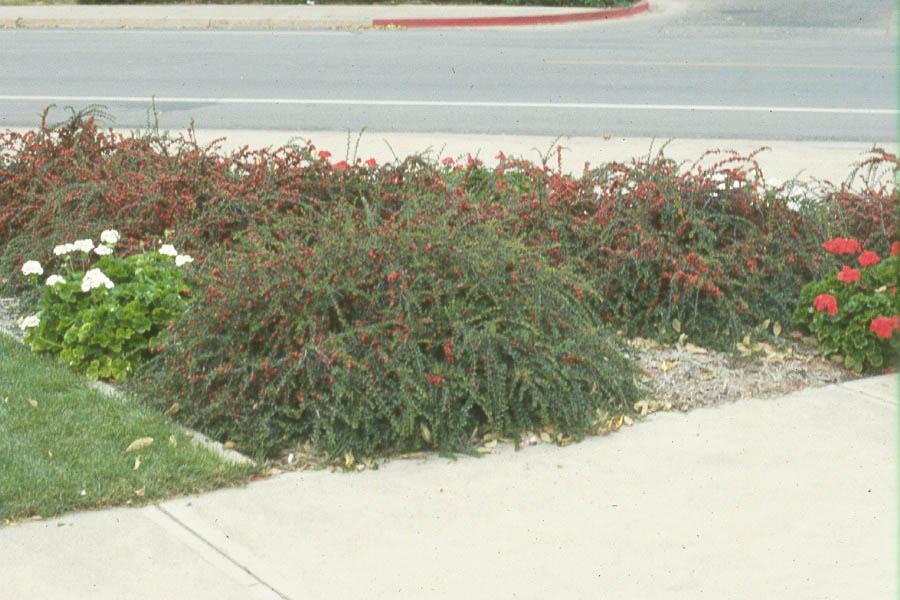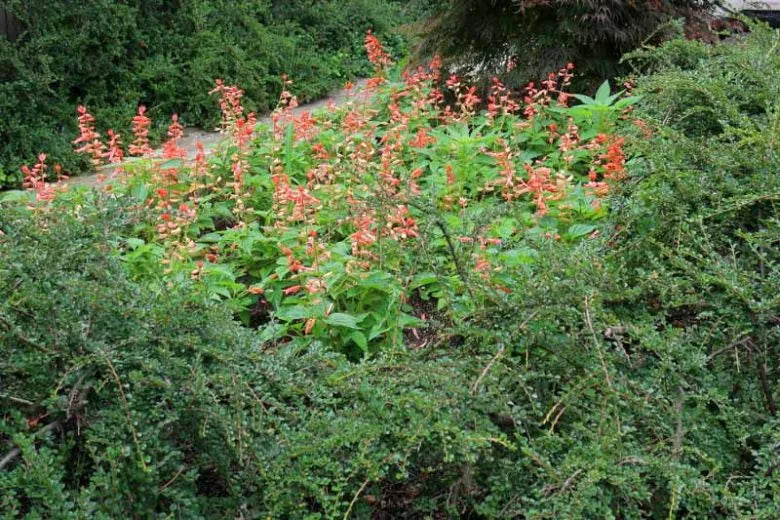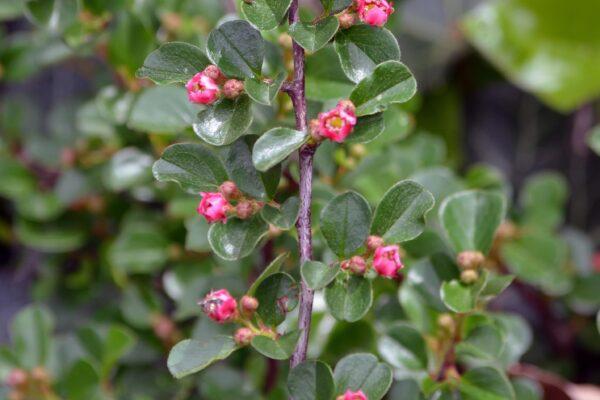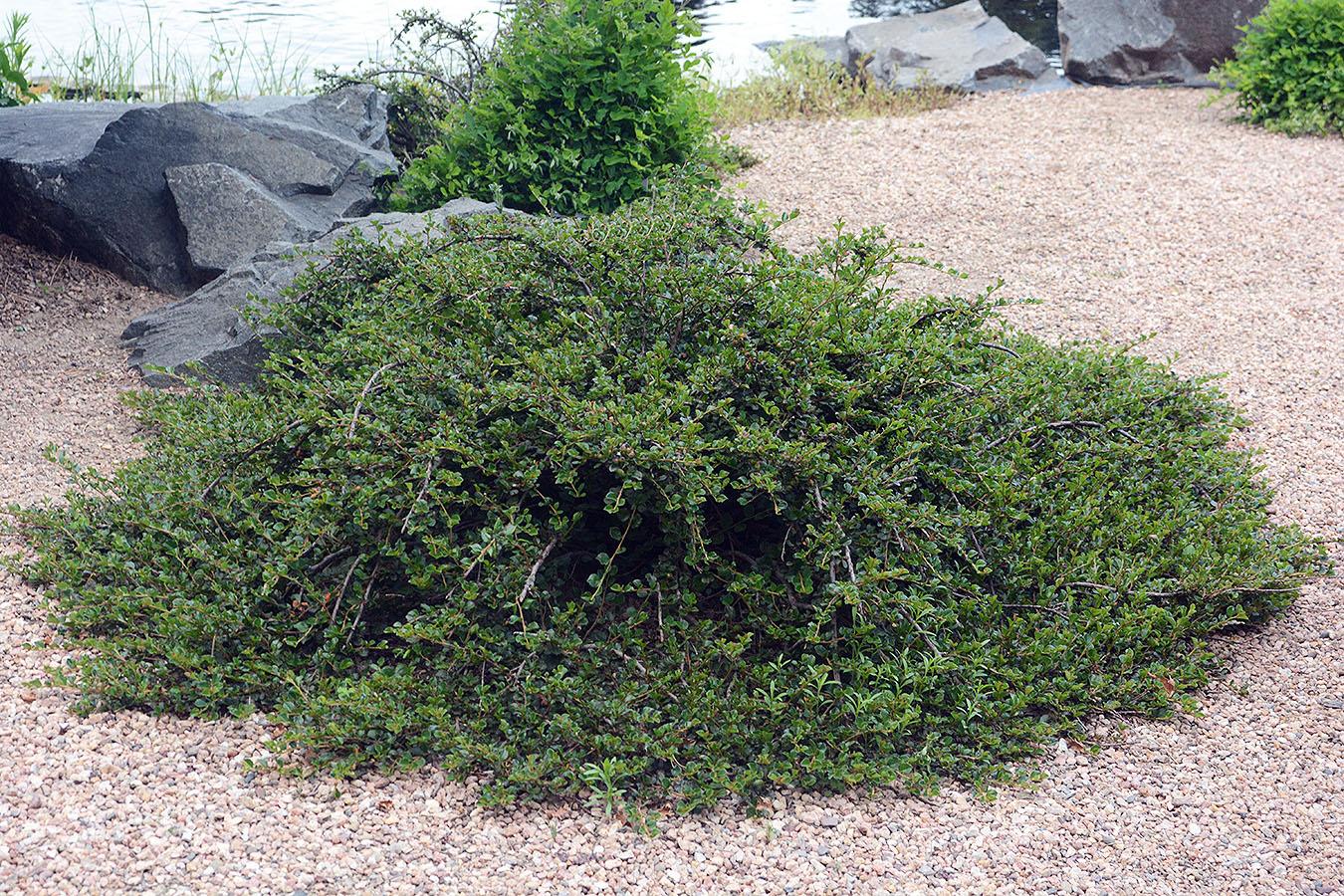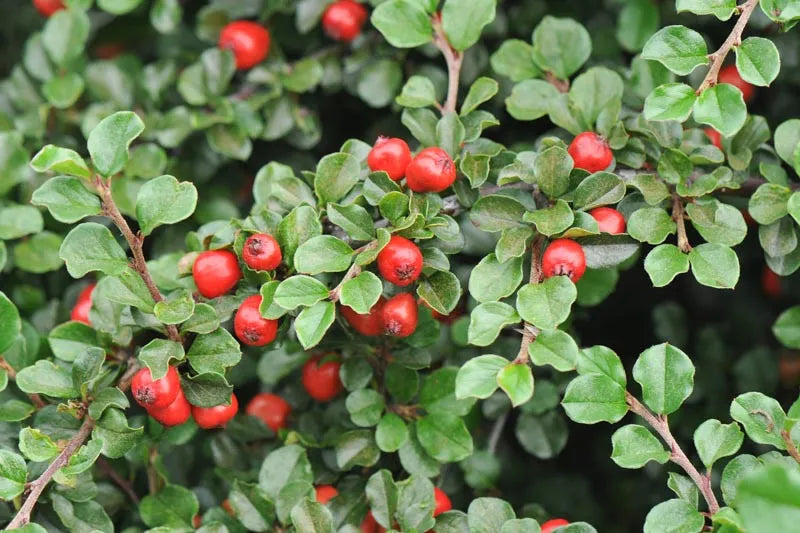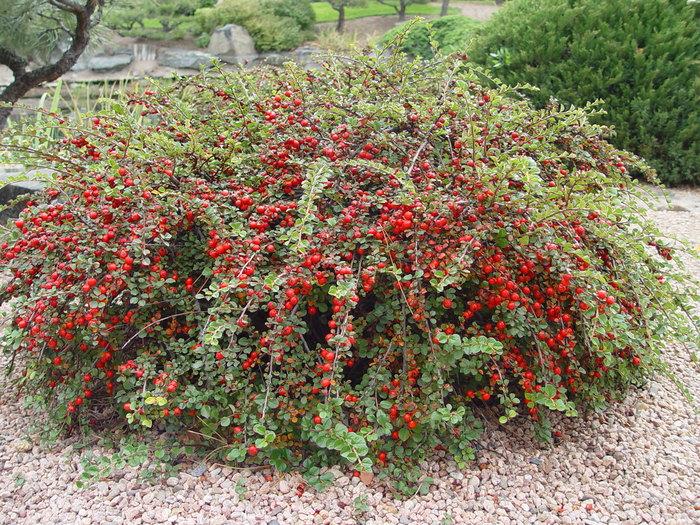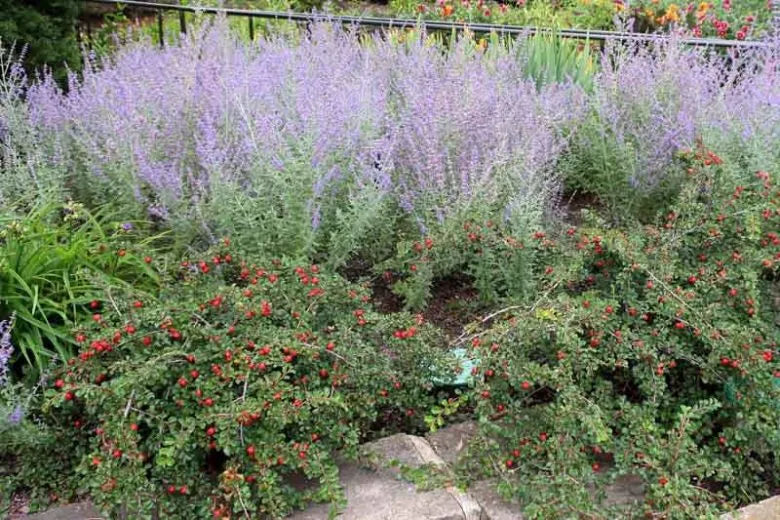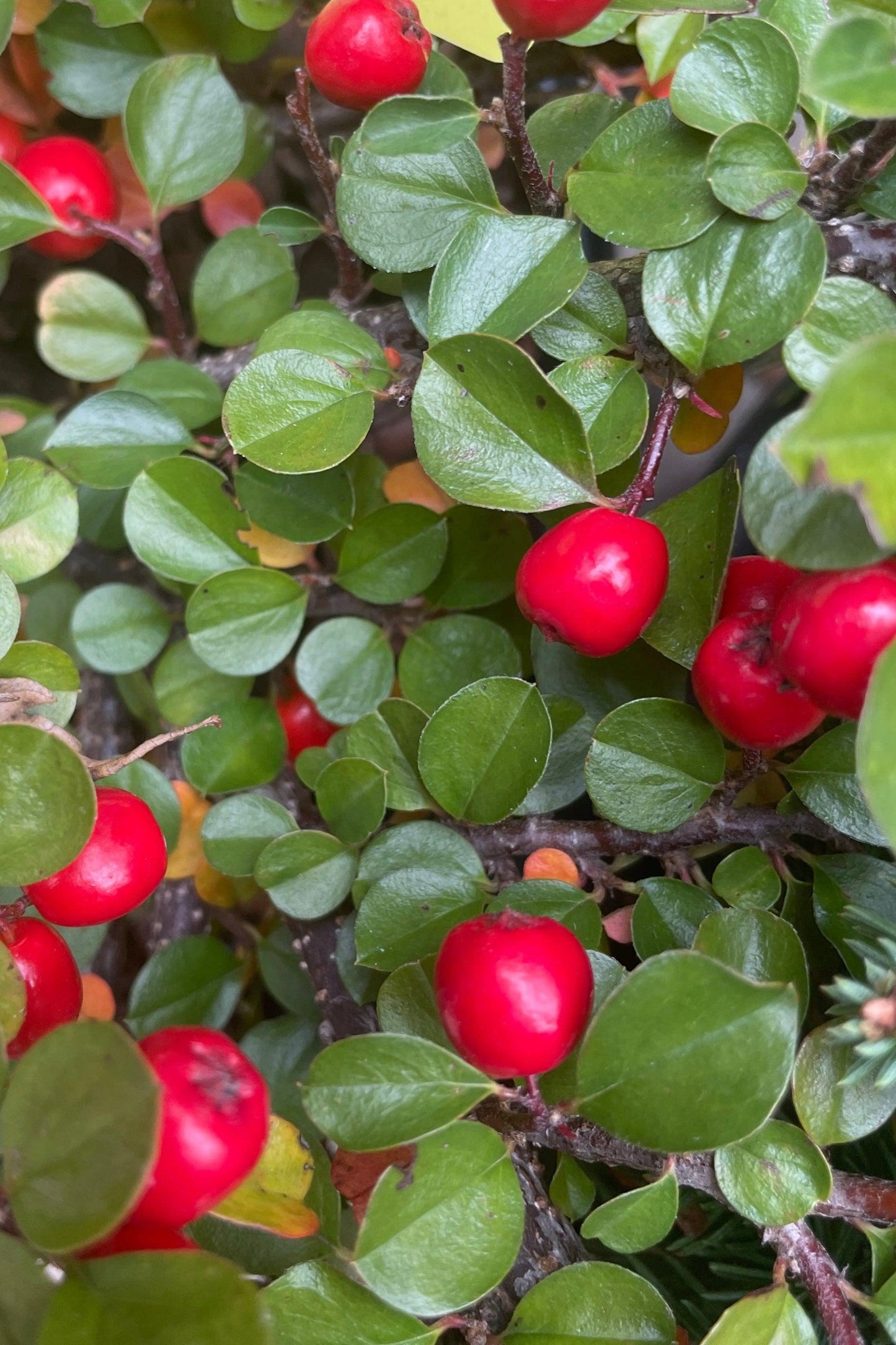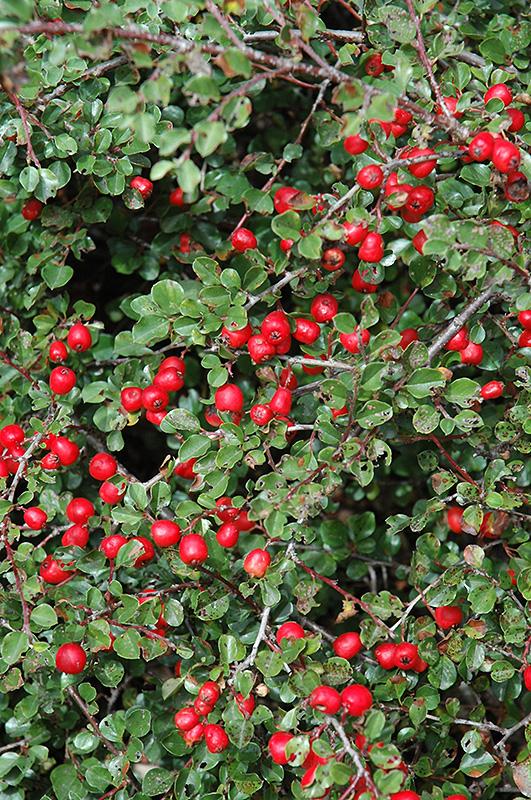1
/
of
13
Cranberry Cotoneaster-Deciduous Shrub-Ideal for Ground Cover and Erosion Control 2 Gallon
Cranberry Cotoneaster-Deciduous Shrub-Ideal for Ground Cover and Erosion Control 2 Gallon
Regular price
$84.00 USD
Regular price
$109.20 USD
Sale price
$84.00 USD
Unit price
/
per
Shipping calculated at checkout.
SKU:nsd0038-redcrocus
Couldn't load pickup availability
Cotoneaster apiculatus
Description
Cotoneaster apiculatus, commonly known as Cranberry Cotoneaster, is a low-growing, deciduous shrub that is prized for its attractive foliage and bright red berries. It forms a dense, spreading mat that makes it ideal for ground cover. In the fall, its leaves turn a vibrant red, adding seasonal interest to gardens.
Suggested Uses
This plant is excellent for use as ground cover, in rock gardens, or as a border plant. It is also suitable for erosion control on slopes and can be used in mass plantings for a striking visual effect.
Plant Details
-
 Botanical Name: Cotoneaster apiculatus
Botanical Name: Cotoneaster apiculatus -
 Common Name: Cranberry Cotoneaster
Common Name: Cranberry Cotoneaster -
 Size & Growth: 1-3 feet tall, 3-6 feet wide
Size & Growth: 1-3 feet tall, 3-6 feet wide -
 Hardiness Zones: 4-7
Hardiness Zones: 4-7 -
 Foliage Type: Deciduous
Foliage Type: Deciduous -
 Bloom Time: Late spring
Bloom Time: Late spring -
 Growth Rate: Moderate
Growth Rate: Moderate -
 Light Requirements: Full sun to partial shade
Light Requirements: Full sun to partial shade -
 Attracts Pollinators: Yes
Attracts Pollinators: Yes -
 Indoor Friendly: No
Indoor Friendly: No -
 Container Friendly: Yes
Container Friendly: Yes -
 Deer Resistant: Yes
Deer Resistant: Yes -
 Pet Warning: Berries are mildly toxic if ingested
Pet Warning: Berries are mildly toxic if ingested -
 Fragrant: No
Fragrant: No -
 Cut Flower: No
Cut Flower: No -
 Grows Well With: Junipers, ornamental grasses
Grows Well With: Junipers, ornamental grasses
Care Tips
-
 Planting Instructions: Plant in well-drained soil in spring or fall
Planting Instructions: Plant in well-drained soil in spring or fall -
 Soil Moisture: Keep soil evenly moist but not waterlogged
Soil Moisture: Keep soil evenly moist but not waterlogged -
 Soil Type: Prefers loamy, well-drained soil
Soil Type: Prefers loamy, well-drained soil -
 Humidity: Tolerates average humidity
Humidity: Tolerates average humidity -
 Pruning Instructions: Prune in late winter to early spring to maintain shape
Pruning Instructions: Prune in late winter to early spring to maintain shape -
 Winter Care: Mulch to protect roots in colder climates
Winter Care: Mulch to protect roots in colder climates -
 Planting Depth: Plant at the same depth as nursery pot
Planting Depth: Plant at the same depth as nursery pot -
 Fertilization: Fertilize in early spring with a balanced fertilizer
Fertilization: Fertilize in early spring with a balanced fertilizer -
 Special Care: Monitor for pests such as aphids and scale
Special Care: Monitor for pests such as aphids and scale
Share
